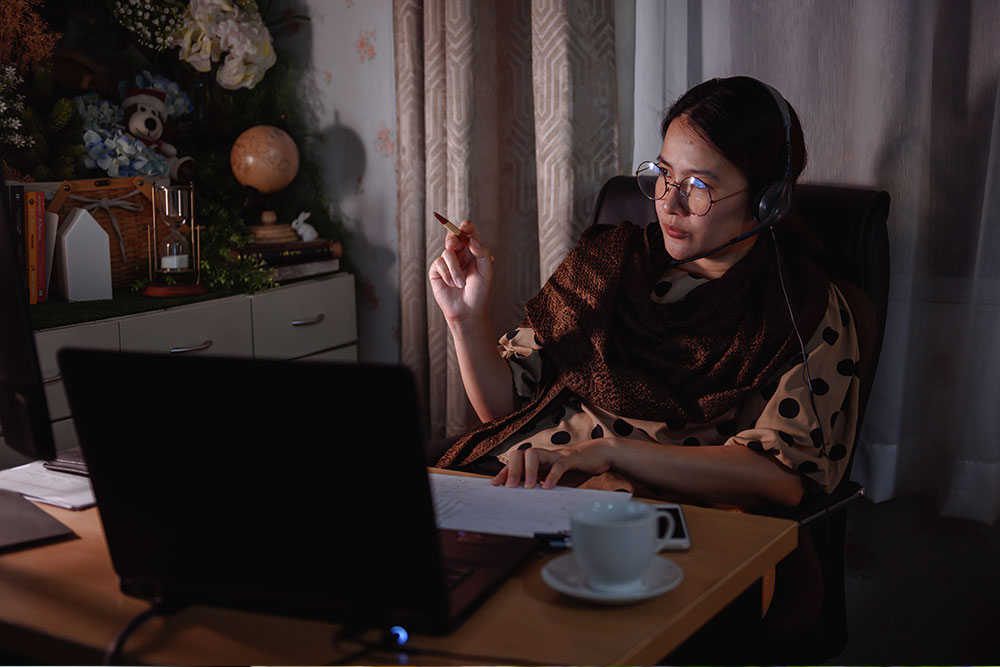When COVID-19 made it mandatory for businesses all around the world to switch from coming into the office, to working remotely, working from home or indulging in a workation became a significant part of the new normal. Since this shift, most workplaces see this as a norm, irrespective of the pandemic. But the question remains, is there some amount of freedom for those working from home? We asked those who have been a part of this ‘new normal’. Here’s what they had to say.

Flexibility
For Shambhavi Singh, a copywriter at an advertising agency in Gurgaon, the idea of work from home was not new, as she had done that a couple of times before. However, with the lockdowns and the sudden shift to working from home, it did have an impact, albeit a small one, in the way she worked. The biggest benefit she saw, was the flexibility of the work she could do. “Earlier, I had to close on pitches, and submissions within a particular time limit. But with the new rules of working from home, I could be flexible with my timings and deadlines, which made it easier for me to produce quality work.”

Less Stress And More Savings
In a pre-pandemic world, if your office started at a particular time, chances are you’d get an early start to your day. For Neha Rao, a middle-school teacher at a private school in Gurgaon, her day used to begin around 5am, as she would wake up, prepare food for her children and husband, get them all ready for their day, and then proceed to leave for school. However, the pandemic brought her some respite. “Instead of waking up at the break of dawn, I can now sleep in, wake up with no rush to get the kids ready and out the door, and still have some time before I begin with my online classes. Since my husband is also working from home, we divide the chores between us, making it less stressful for the both of us.” Another thing she points out, is the amount you save on the commute and incidentals, which was unavoidable pre-pandemic. “We never realised how much we actually ended up spending in the name of this miscellaneous expenses. That has been put on hold as we stay in, and has also presented an opportunityto account for our income VS expenditure, thus allowing us to save.”

Work-Life Imbalance
While we talk about the flexibility of the work and timings, one cannot deny that working from home has led to a sort of imbalance between work and your life after work hours. Smriti Krishnan, an analyst with a multi-national company states, “There has been an overflow of work, since we are expected to only be at home. This has caused most of the employees to continue working into the late hours of the night, and sometimes even the next morning. By the time you wrap up work, you hardly have the energy to focus on the other aspects of your life, for example, household chores or even your activities to decompress.” However, she does say that if you play your cards right, that is, set some concrete boundaries and are vocal about it, you’ll manage to squeeze in some me-time whenever you feel overwhelmed. “My manager and colleagues have been understanding about needing time-off or breaks, since there was a point in this whole situation where a lot of our workers reported cases of burnout. Thankfully, the company was proactive about it and established rules and regulations regarding the workload and fixed hours,” she says.

Isolation
As we stay indoors most of the time, there is little to no scope for interaction between people, be it friends or co-workers. And sometimes, you’ll agree that other faces apart from family can really uplift your mood. “While I understand why we are working from home in the first place, there’s no denying that it has also brought about a sense of isolation, especially for people like me,” says Garima Negi, a software professional in Hyderabad, who is away from her home in Mumbai. “It’s great to see people’s faces during the team meetings, but I do miss meeting my friends and family, and spending time with them. Even my colleagues at work were a great company to be around, and during stressful times such as these, it always helps to have people around,” she elaborates.

The Takeaway
Now that we’ve heard their take, it gives us some clarity to work out the pros and cons of working from home. On the one hand, you have the freedom to get your work done anytime from the comforts of your home, while on the other hand, the lack of boundaries can lead to you overworking yourself., The idea of being ‘free’ in such a situation depends on how the individual handles the situation, and prioritises work and home.